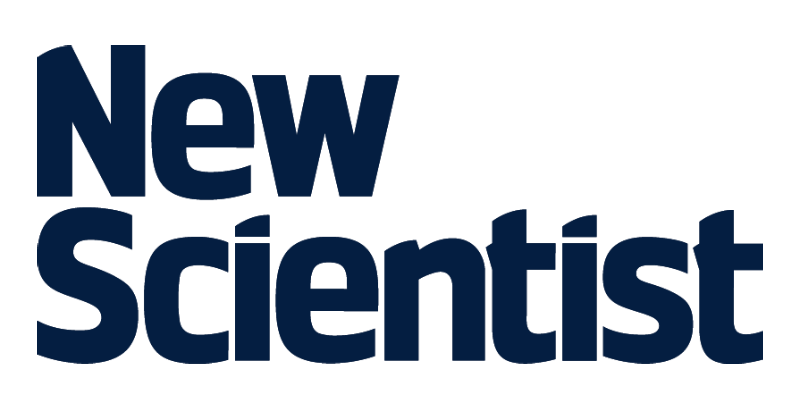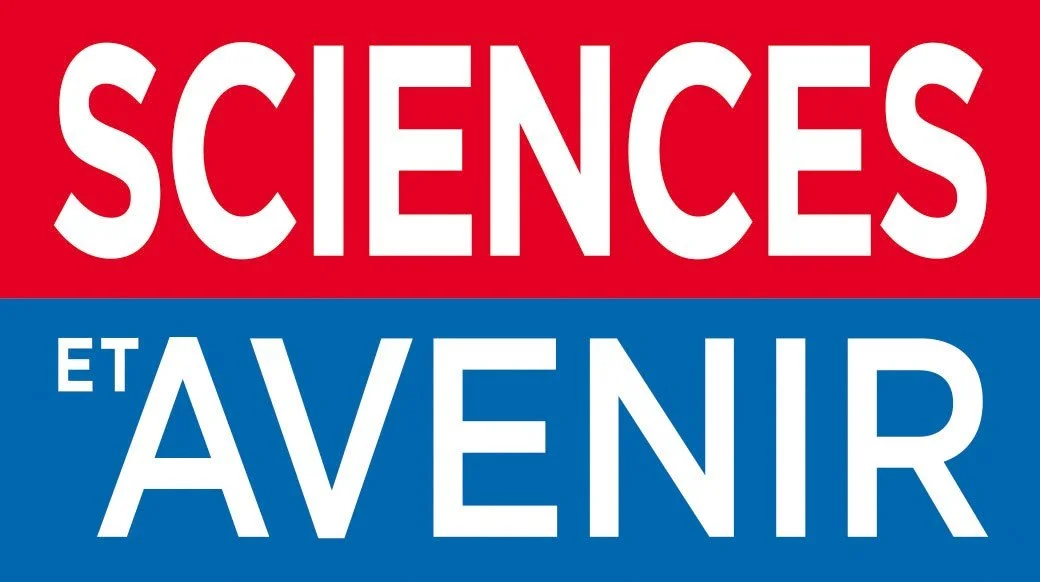Press
Page last updated: December 17, 2025.
Note that this page contains a non-exhaustive list of written, online, radio and TV media coverage.
At home and at school, AI is transforming childhood
It brings many benefits, but also hidden dangers.
Check the cover story of The Economist here.
ChatGPT nous rend-il plus « bête » ? Les défis lancés par l'IA générative à notre cerveau
CHATGPT : LA REVOLUTION DE L'IA A TROIS ANS - L'essor des chatbots d'IA, tels que ChatGPT, suscite des inquiétudes chez les neuroscientifiques. Une étude du MIT montre que leur usage intensif pourrait affaiblir nos capacités cognitives, en limitant l'activité cérébrale nécessaire à l'apprentissage et à la réflexion.
Check the article here (in French).
Colleges Are Preparing to Self-Lobotomize
The skills that students will need in an age of automation are precisely those that are eroded by inserting AI into the educational process.
Check the article here.
Les chercheurs montrent que l'usage de ChatGPT compromet notre cerveau et sa capacité de raisonnement : notre intelligence se retrouve menacée par la façon dont nous utilisons l'IA.
Check the article here (in French).
AI is widespread in higher ed, but is it helping or hurting student learning?
NBC10 Boston collaborated with journalism students at Boston University’s College of Communication to take a deep dive into how generative AI is changing the approach of higher education, from how students apply it to their everyday work to how universities are responding with academic programs and institutional studies.
Watch the video and the the article here.
Big Tech Wants Direct Access to Our Brains: As neural implant technology and A.I. advance at breakneck speeds, do we need a new set of rights to protect our most intimate data — our minds?
Learn more about the demo I did for Linda Kinstler and the full article here.
Neurotechnologies : l’Unesco adopte des garde-fous éthiques
La recommandation onusienne vise à protéger les droits de l’homme dans l’usage de procédés qui permettent d’interpréter l’activité cérébrale à des fins médicales, mais aussi en vue d’applications commerciales. Des spécialistes soulignent toutefois les limites du texte.
Check the article here (in French).
En abandonnant l’écriture à l’IA, nous risquons de nous empêcher de réfléchir.
Ecrire ne nous permet pas seulement de communiquer, mais nous aide à organiser nos idées. Recourir aux générateurs de texte par intelligence artificielle revient donc à laisser les milliardaires de la Silicon Valley penser à notre place.
Check the article here (in French).
Great article by Miriam Frankel “AI may blunt our thinking skills – here’s what you can do about it”.
Read my comments and the full article here.
How A.I. and Social Media Contribute to ‘Brain Rot’ by Brian X. Chen
A.I. search tools, chatbots and social media are associated with lower cognitive performance, studies say. What to do?
Read my comments and the full article here.
Trop exposé aux écrans, le cerveau devient fainéant par Nicolas Gutierrez C.
Consultées frénétiquement, les applications nuisent à l'attention et à la concentration. Alors qu'utilisées avec discernement, elles semblent augmenter les performances.
Read in French here.
Check my comments on the AI-powered robopets and the future of our privacy.
Do We Want an Age of AI Robopets? by Jessica Roy.
Read the article here.
Guillaume Grallet for a cover story of Le Point:
Plus fort que l'IA : le choc de la super-intelligence
Read in French here.
Helen Pearson examined what widespread use of AI means for universities — and students — in a feature for Nature Magazine: “'Universities are embracing AI: will students get smarter or stop thinking?“
Tools such as ChatGPT can, within seconds, analyse information and generate polished essays — some of the exact skills that universities have conventionally taught. So is this the future of learning or the road to students’ intellectual demise?
Check the article here.
“Kids are offloading their critical thinking to AI chatbots—here’s how to protect them, experts say”, an article by Ernestine Siu.
Check the article here.
A feature by Sophie McBain:
Are we living in a golden age of stupidity?
”From brain-rotting videos to AI creep, every technological advance seems to make it harder to work, remember, think and function independently …”
Read the article here.
Digital technology is transforming how we think, write, and connect. Does it stifle creativity and wonder, or open new paths for meaning, community, and faith?
I was excited to join Brandon Vaidyanathan, E. Glen Weyl, and Moira Weigel as we explore how digital technology shapes the way we think, feel, act and understand the human condition.
This is the inaugural event of the Public Culture Project, an initiative based in the office of the Dean of Arts & Humanities.
Learn more about the event here.
Read the feature in the Harvard Gazette here.
What Happens When Universities Offer a “Critical Embrace” of AI?
With platforms like Boston University’s “TerrierGPT,” the pressure for students to use AI is coming from colleges themselves, even as researchers warn of long-term consequences.
Read the article here.
Financial Times ran a visualization feature on how AI became our personal assistant: data shows the ways millions have integrated the technology into their everyday lives.
The article features opinions of several experts, including myself.
Check it here.
By Kirk Carapezza/GBH News:
Families are questioning the value of a liberal arts education. At the same time, digital tools like ChatGPT — able to summarize readings or spit out essays in seconds — are reshaping classrooms and pushing faculty to rethink what, and how, they teach.
Nationwide, skepticism about the return on investment in college is growing. A new Gallup poll finds only 35% of Americans now view a degree as “very important,” down from 75% just 15 years ago.
Some professors are leaning into AI as a teaching partner. But others, like English professor Carlo Rotella at Boston College, are pushing back, instead doubling down on digital-free, discussion-based classes. In his new book, “What Can I Get Out of This?,” Rotella argues that unplugged classrooms are a kind of training ground for citizenship.
“I think you should encounter people in your education who show you how to use AI and other technologies,” he said. “But if you want to get stronger and faster, you need to move the weight yourself and you need to run the distance yourself.”
The debate isn’t just about AI and tech. It’s about recasting the purpose of college itself — and what skills we value.
You can read and listen to GBH story here.
Fantástico (Globo TV, Brazil)
Quadro Mentes Digitais mostra como a IA vem transformando a Educação, incluindo pesquisa do MIT que comparou estudantes usando o ChatGPT com outros usando apenas o próprio cérebro.
Watch the video here (in Portuguese).
MIT Tech Review Germany ran a cover story about AI and creativity, in their September 2025 edition.
Wenn ChatGPT unsere Aufsätze schreibt
Ein Beispiel ist die Forschung von Nataliya Kosmyna am MIT Media Lab. Ihre Studie zeigt: Wer beim Schreiben von Aufsätzen auf ChatGPT setzt, aktiviert weniger Hirnregionen als beim eigenständigen Arbeiten. Das ist kein Beweis für „dumm machende“ Maschinen – wohl aber ein Hinweis auf die Folgen, wenn wir das Denken zu früh an Algorithmen delegieren.
AI is supercharging Gen Z workers — if they can land a job.
AI is changing jobs for some young people, helping them take on bigger responsibilities while also diminishing entry-level roles.
Check the article here.
Are We Offloading Critical Thinking to Chatbots?
Research, much if it by companies with deep investment in AI, suggests that chatbot interactions alter how users think.
Check the article here.
Parents, Your Job Has Changed in the A.I. Era
Humans are pros when it comes to cognitive offloading, meaning using tools to free up mental processing space and avoid thinking.
Check the article here.
Will AI Choke Off the Supply of Knowledge?
More people turn to ChatGPT and other large language models for answers, but they don’t add to the stock of knowledge
Check the article here.
How to Make Sure ChatGPT Doesn’t Make You Dumber
Generative AI tools are quietly weakening our cognitive skills. Here are four ways to keep that from happening.
Check. the article here.
O ChatGPT está nos deixando mais burros? Não é bem assim, diz cientista do MIT
Em entrevista à GALILEU, a pesquisadora Nataliya Kosmyna, do MIT Media Lab, defende que o ChatGPT não está exatamente “nos deixando mais burros”. Mas é preciso saber o momento certo de usá-lo para não atrapalhar a aprendizagem
Check the article here.
Période d'essai pour l'IA dans l'éducation
Débordés par les élèves et les étudiants qui trichent tous avec l'intelligence artificielle, les collèges, lycées, universités et grandes écoles du monde entier posent des règles très strictes pour son utilisation. En attendant de pouvoir évaluer précisément son impact sur les apprentissages.
Check the article here (in French).
Et vous, comment va votre cerveau ?
Une étude publiée par le Massachusetts Institute of Technology a démontré qu’il y a un « coût cognitif » qui vient avec l’utilisation de ChatGPT.
Check the article here (in French).
In this episode of the ODSC Ai X Podcast, I sat down for an interview with host Sheamus McGovern, to explore our research paper “Your Brain on ChatGPT.” I discuss the study’s findings on how AI writing tools like ChatGPT can impact memory, learning, cognitive engagement, and even long-term brain development. I also share how science fiction inspired my career in brain-computer interfaces and offer insights for educators, technologists, and everyday users of generative AI.
Key Topics Covered:
- What “cognitive debt” means and how it differs from “cognitive offloading” and the “Google effect”
- How over-reliance on LLMs like ChatGPT can reduce cognitive engagement and memory recall
- The role of EEG and neural connectivity in assessing cognitive load during essay writing
- Why essays written with ChatGPT lack originality, personal voice, and ownership
- The potential dangers of using LLMs in education—especially among developing brains
- What Session 4 of the study revealed about users’ inability to adapt once LLM support was removed
- Concrete strategies for using AI responsibly and mitigating long-term cognitive risk
- How AI tools should be designed with the human brain—and human development—in mind
- The hidden energy and environmental costs of constant AI use
- Why younger users may be the most vulnerable to long-term cognitive effects
Memorable Outtakes:
- "There is no cognitive credit card. You cannot pay this debt off." — Dr. Nataliya Kosmyna
- "You do not talk to a calculator about your feelings." — Dr. Nataliya Kosmyna, on why LLMs are fundamentally different from traditional tools
- "If you don’t feel ownership over your work, what is there left to remember?" — Dr. Kosmyna on the link between memory encoding and cognitive agency.
Listen to the podcast here.
Cómo utilizar la IA para hacer tu tarea sin hacer trampa
El potencial real de estas herramientas surge cuando se usan como un complemento al pensamiento humano, no como un atajo para evitarlo.
Check the article here.
Modo ‘beta’ global: el experimento masivo de la IA
La humanidad se convierte de nuevo en un laboratorio para las grandes tecnológicas, que despliegan sin control unas herramientas poco fiables que ya forman parte de la vida cotidiana de miles de millones de personas en todo el mundo.
Check the article in Spanish here.
Global ‘beta’ mode: The massive AI experiment
Humanity is once again a laboratory for big tech, which deploys uncontrolled, unreliable tools that are already part of the daily lives of billions of people around the world.
Check the article in English here.
Hjärnan arbetar mindre då man skriver med hjälp av språkmodeller
Forskare vill se mer debatt om användningen av artificiell intelligens inom utbildningen.
Check the interview here (in Swedish).
AI gives students more reasons to not read books. It’s hurting their literacy.
Even before generative AI, fewer people were reading books for pleasure or their studies.
Check the article here.
Check out WBUR On Point episode “Does using AI dumb you down?” here.
Here is what Barry Gordon, director of the cognitive neurology/neuropsychology division at Johns Hopkins University, said «… reasonable to imagine that the more parts of your brain you use, compared to less parts, you're going to remember something better in general. Because you're going to have it in more places, more active. […] evidence that the brain seems to pay attention to how engaged it is. […] in stroke rehabilitation, if someone's trying to just rehabilitate one arm, it's not as effective as if the same motion is part of a whole-body activity or involving more than the arm. So it's almost as if the brain is taking account of how important something is and saying, oh, this must be important. I'm going to learn everything better.»
Same with the brain connectivity, our study showed that those in Brain-only group had wider networks activated in their brains.
Audrey van der Meer, professor in the department of psychology at Norwegian University of Science and Technology (NTNU), featured their paper from last year: «Handwriting but not typewriting leads to widespread brain connectivity: a high-density EEG study with implications for the classroom».
The risk of letting AI do your thinking
The risk with powerful AI chatbots, when overused, is that having the bulk of our writing, analysis and creative tasks done for us may mean we engage in less reasoning over time.
Check the article here.
In my recent interview with the The Telegraph's Andrew Orlowski we discussed the findings of our paper “Your Brain on ChatGPT” and my opinion on why cognitive debt spreads beyond one’s critical thinking, and how most of the performance gains reported have not been confirmed by multiple studies.
Check the article here.
"Die neuronale Vernetzung im Gehirn wird mit jedem Tool schwächer"
Was passiert in unserem Gehirn, wenn wir ChatGPT benutzen? Das hat die MIT-Forscherin Nataliya Kos'myna untersucht. Ihr Rat ist: Erst denken, dann die KI fragen.
Read my interview with Die Zeit here (in German).
Loved Guest Opinion Essay published in The New York Times, by Meghan O'Rourke after her thought experiment with ChatGPT, also mentioning our paper «Your Brain on ChatGPT».
«When I write, the process is full of risk, error and painstaking self-correction. It arrives somewhere surprising only when I’ve stayed in uncertainty long enough to find out what I had initially failed to understand. This 𝐚𝐭𝐭𝐞𝐧𝐭𝐢𝐨𝐧 to the world is worth trying to preserve. The act of care that makes meaning – or insight – possible. To do so we 𝐰𝐢𝐥𝐥 𝐫𝐞𝐪𝐮𝐢𝐫𝐞 𝐭𝐡𝐨𝐮𝐠𝐡𝐭 𝐚𝐧𝐝 𝐰𝐨𝐫𝐤.»
She did put it well, to capture the moment when it becomes «no-brainer» for a LLM user to say «yes» to the next suggestion and relinquish ownership and go from LLM being human’s derivative, to becoming yourself, a derivative of LLM.
Check the article here.
“More and more of the tasks we perform in our daily lives are been guided by artificial intelligence, from searching the internet for answers to relying on satellite navigation in our cars. But studies recently released suggest that our use of AI is having a negative impact on our ability to make informed judgements and decisions. In one recent study from MiT’s Media Lab, a group of people were asked to write several essays. Some of them used AI, others didn’t. Those who used generative AI reportedly became lazier with each subsequent essay.”
Listen here to the new podcast on BBC discussing several recent studies on cognitive offloading, including our paper “Your Brain on ChatGPT”.
“Will AI make you stupid? Creativity and critical thinking might take a hit. But there are ways to soften the blow.”
New article by The Economist discusses our recent study “Your Brain on ChatGPT”.
Check the article here.
Utiliser ChatGPT diminue-t-il notre activité cérébrale?
En peu de temps, des outils conversationnels comme ChatGPT, Claude et Copilot ont été intégrés au quotidien de dizaines de millions d’internautes. Mais voilà qu’une étude du Massachusetts Institute of Technology (MIT) laisse supposer que l'utilisation de l'intelligence artificielle (IA) générative pourrait rendre notre cerveau moins actif et avoir des conséquences cognitives inattendues.
Check the article here (in French).
Χαλάει το μυαλό μας το ChatGPT;
Οι ερευνητές του MIT Media Lab ανέλυσαν την εγκεφαλική δραστηριότητα των χρηστών του και βρήκαν ότι βλάπτει σοβαρά την κριτική μας ικανότητα: ομογενοποιεί τη σκέψη, φτωχαίνει τη μνήμη και υπονομεύει την κρίση μας
Check the article here (in Greek).
More and more students are using AI to cheat – but does it really matter?
More than half of students now use generative AI to help with their assessments – but experts are warning that overrelying on technology can stunt critical thinking, memory and language skills.
Check the article here.
I talked to CBS News about our latest study “Your Brain on ChatGPT” and how using AI tools for writing can lead to less widespread functional brain connectivity and changes in critical thinking skills.
Watch the video here.
If we fail with AI in education, do other domains even have a chance?
Great to see the conversation taking place. We need more studies and more research done to truly understand where humans benefit from AI in the long term.
Excited for Opinion section in The New York Times by David Brooks for asking the question.
Check the article here.
AI påverkar våra hjärnor
AI-verktyg som ChatGPT kan minska vår egen hjärnaktivitet och vårt engagemang, enligt en ny studie från MIT.
Studenterna som skriver utan hjälpmedel presterar bäst och har högst hjärnaktivitet, medan de som använder AI producerar likartade uppsatser och skriver sen sämre på egen hand.
Att välja rätt tidpunkt för att introducera AI i skolan kan vara avgörande, det säger Nataliya Kosmyna, AI-forskare vid MIT
Listen to the interview here (in Swedish).
EEG and recall tests suggest people who use ChatGPT to write essays aren't learning much. An article in The Register discusses our latest study, “Your Brain on ChatGPT”.
Check the article here.
Comment ChatGPT grille notre cerveau
On s'en doutait, c'est désormais prouvé : ChatGPT rend service, mais au prix d'une diminution de l'intelligence de ses utilisateurs. Que va-t-il rester aux humains s'ils délèguent même leurs capacités cognitives ? s'interroge Gaspard Koenig.
Check the article here (in French).
“Is AI rewiring our minds? Scientists probe cognitive cost of chatbots” by The Washington Post.
Check the article here.
What happens to your brain when you use ChatGPT to write an essay? See what new study found, reports USA Today.
Check the article here.
ChatGPT use linked to cognitive decline, research reveals.
People who relied on ChatGPT to write an essay ‘consistently underperformed at neural, linguistic and behavioral levels,’ according to the study, reports The Independent.
Check the article here.
The New Yorker article by Kyle Chayka "A.I. Is Homogenizing Our Thoughts" featured research from colleagues at Cornell University, Santa Clara University and our own "Your Brain on ChatGPT" paper - all pointing towards influence of LLMs on human spoken communication.
Check the article here.
The Hill reported on our “Brain on ChatGPT” study: “ChatGPT can harm an individual’s critical thinking over time, a study suggests”.
Check the article here.
In a recent CNN interview, I shared findings from our new study “Your Brain on ChatGPT“, showing that relying solely on AI for tasks like essay writing can impact functional brain connectivity and memory. Our research highlights how overusing AI tools like ChatGPT may impact how we think — and why human effort still matters.
This is also a great watch if you want to have a brief explanation about our study, clear limitations and a call for action.
Watch the video here.
Your reliance on ChatGPT might be really bad for your brain.
An MIT study finds that heavy reliance on AI tools like ChatGPT can dull memory, weaken critical thinking, and lead to lazier writing.
Check the article here.
“Study reveals chatbots risk hampering development of critical thinking, memory and language skills”, reports the Telegraph about our latest study “Your Brain on ChatGPT”.
Check the article here.
A study found the least widespread functional brain connectivity in students who used AI tools for help with writing essays, writes The Times.
Check the article here.
Great overview of our study “Your Brain on ChatGPT“ by Andrew R. Chow
Included are my comments regarding a risk of ending up with a “KindergartenGPT“.
Check the article here: https://time.com/7295195/ai-chatgpt-google-learning-school/
Check the video interview here.
In May 2025 at a meeting in Paris hosted by UNESCO, delegates finalized a set of ethical principles to govern neurotechnologies. The delegates considered both implantable devices and non-invasive technologies, which could be used in fields as diverse as medicine, entertainment, and education. Different experts, including myself, spoke to science journalist Kristel Tjandra about the recommendations, which UNESCO Member States will vote on in November.
Learn more about UNESCO’s work on the ethics of neurotech, where I served as an AHEG member: https://www.unesco.org/en/ethics-neurotech/recommendation
Read the Nature article here: https://www.nature.com/articles/d41586-025-01679-8
“Living the Slop Life: Slop videos. Slop bowls. Slop clothing hauls. When did we get so submerged in the slop-ified muck?”
A NYT article by Emma Goldberg, featuring our recent preprint, “Your Brain on ChatGPT”.
Check the article here.
French newspaper Le Monde on 10/29/2024 wrote an in-depth overview of opportunities and dangers of brain augmentation.
Check it here (in French).
Check this special issue of a French magazine Le Point - 'Le guide du cerveau', featuring an article about my work.
More details here.
Mandag Morgen, a Dutch newspaper, released a cover story on June 17, 2024, on the promises, challenges and dangers of brain sensing.
Read the story here, featuring opinions of several experts, myself included (in Dutch) here.
In Communications of the ACM (Association for Computing Machinery), on May 7, 2024, science journalist Sandrine Ceurstemont talks to different experts, including myself about the potential of brain-computer interfaces (BCIs), and what safeguards need to be in place before they are widely adopted.
Check the article here.
Check the article in Le Point magazine (N2690) here about the Paris-Saclay Summit 2024 to learn more about the ground-breaking innovations from amazing scientists from all different areas of expertise: why we do what we do, what are the societal and ethical implications of our work, and understand the infrastructure needed to be in place to make all this research come to life.
Le Point published an article on 01/31/2024 about update from Neuralink and it contains a lot of my thoughts. Take a look.
Scientists are gathering data of brain activity from non-invasive brain scans and analyzing that information, sometimes with AI, to understand people’s different thoughts and mental images.
The World’s Carol Hills interviewed me about how the science works, and how new discoveries can help the brain and technology function together.
Listen to the interview here: https://theworld.org/media/2023-10-20/researchers-studying-electrical-signals-human-brains-are-getting-little-closer
So honored to be featured on the cover of September-October 2023 issue of MIT Technology Review about space tech alongside my amazing colleagues from MIT Media Lab!
Check the article here.
Wired featured our HUMANS project when discussing commercial flight to low orbit and beyond in May 2023.
Check the article here.
Our wafer has been launched on the Ax-2 mission to the International Space Station (ISS) - https://www.axiomspace.com/news/ax2-steamoutreach.
Check the details of the mission here: https://www.axiomspace.com/missions/ax2.
Check out this video by The Economist featuring my work on brain sensing - AttentivU with NASA, Brain Switch - for patients with ALS as well as NeuraFutures project - all carried out at MIT Media Lab, December 15, 2022.
The French TV program Quotidien ran an interview with me on August 29, 2022 to talk about my project ‘Brain Switch’, which is centered around Brain-Computer Interfaces to help people who have Locked-In Syndrome or ALS communicate with the outside world using their brain signals only (+ a live demo of controlling a small robot using brain signals).
French magazine ActuIA discusses my work on helping population with ALS to communicate with their caregivers, December 2021 - February 2022.
The Belgian TV program Tout S’explique ran an interview with me for their 20 years anniversary on Dec 2, 2021 to talk about my work on Brain-Computer Interfaces (+ a live demo of controlling a small robot using brain signals).
Le magazine français Le Management n297 (Aout 2021) parle de mes travaux sur la maison intelligente contrôlée par la pensée.
Le magazine français La Recherche n565 (Avril/Juin 2021) parle d’AttentivU.
French newspaper Le Monde has featured the portrait of Nataliya as well as her scientific journey, her work on Brain-Computer Interfaces and ethical AI. Check it here, Sep 30, 2020.
French newspaper Le Monde has featured a set of articles in December 2019-January 2020 about scientists and their ideation/creativity process. One of the articles features Nataliya and her inspirational places.
French newspaper for teenagers l’ACTU ran a cover story on brain-computer interfaces with some comments from the specialists in the domain including Nataliya.
MIT Integrated Learning Initiative’s Q&A with me where I talk about AI, education and brain- computer tech.
Wired talked to Nataliya and other researchers about the recent Neuralink presentation on 22/07/2019.
CNN talked to Nataliya and other researchers about the recent Neuralink presentation on 22/07/2019.
The interview with me at France Inter on the 19/03/2016: “Taking off the drone with your brain“.
The French TV program 28Minutes @ARTE interviewed Nataliya on 08/08/2019 to talk about her work on brain-computer Interfaces, artificial intelligence, cognitive augmentation as well as our possible future as species.
Boston Globe featured one of Nataliya’s new projects: the Thinking Cap. Read about it (in English).
Le Parisien featured Nataliya’s work in their article about brain-computer interfaces, November 2018.
Article about Nataliya’s work, herself as well 9 other extraordinary women in “Madame Figaro”; April 2018.











































































